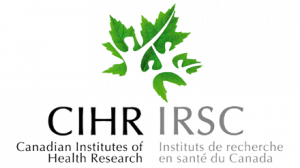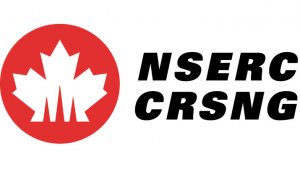Canada Postdoctoral Research Award program

The Canada Postdoctoral Research Award (CPRA) program recognizes and supports the next generation of outstanding innovators, knowledge workers, creative thinkers and researchers at a pivotal time in their careers. The program provides funding and flexibility, empowering Canadian and international leaders in innovation and scholarship of tomorrow to develop the skills to build world-class research and drive Canadian prosperity and competitiveness.
Description
The CPRA program is a federal research talent investment program in the Canada Research Training Awards Suite (CRTAS) administered by the Canadian Institutes of Health Research (CIHR), the Natural Sciences and Engineering Research Council of Canada (NSERC) and the Social Sciences and Humanities Research Council (SSHRC). The CRTAS aims to support the next generation of innovators by providing funding and high-quality research training, cultivating research skills, fostering creativity, and empowering awardees to make significant contributions to Canada’s research ecosystem, economy and prosperity.
To help build a world-leading innovative economy, reinforce a diverse culture of critical thought and improve Canadian productive capacity, the CPRA supports and promotes promising research talent in a wide variety of disciplines and broad fields of health, natural sciences and engineering and social sciences and humanities, including interdisciplinary and multidisciplinary research. This support allows postdoctoral researchers to add to their experience by engaging in research either in Canada or abroad and facilitates their transition to the next phase of their career.
Eligibility
This award is not intended for students (including health professionals) to complete a degree or related internship.
Applications must meet all of the eligibility criteria to be eligible.
General conditions
To be eligible to apply, you must:
- hold or expect to hold a doctorate or health professional degree before the start date of your award; and
- not hold or be on leave from a tenure-track or tenured faculty position. Generally, "tenure or tenure-track" refers to an open-ended academic position in which the holder can form a research group, apply for externally funded research as a principal investigator and teach.
In addition:
- you must have completed all requirements of your doctorate or health professional degree no more than three years before September 1 of the year in which you apply.
Note: This is not the conferred or convocation date indicated on your transcript, but rather the date on which all the requirements of your degree were met, including the successful defense and submission of the corrected copy of your thesis. If you have more than one doctoral degree, the completion date of your most recent relevant degree will be used to determine your eligibility.
Exceptions to the doctoral degree completion eligibility period are granted up to a maximum of three years only if you meet one or more of the following criteria:
-
If your career was significantly interrupted after completing your doctorate or health professional degree due to extenuating circumstances, you may qualify for an extension of the eligibility period. Eligible interruptions may include parental, medical and/or family-related responsibilities, mandatory military service, disruptions due to war, civil conflicts or natural disasters in your country of residence or limited research opportunities due to socio-economic reasons. The eligibility period can be extended by the duration of the eligible delay(s)/interruption(s).
"Career interruption" refers to a period of time when you were not working (full-time or part-time) and when your research was completely interrupted.
- If you have acquired at least six months of full-time, relevant employment in industry or government (experience in an academic institution or its affiliated hospitals, research institutions and other laboratories will not be considered) after you received your doctorate or health professional degree, the eligibility period can be extended by the duration of this employment.
If you became the primary caregiver after the birth or adoption of a child within three years before or after completing your doctorate or health professional degree, your eligibility period will be extended by three years.
If you have engaged in a non-research-related clinical training (e.g., residency) after you received your doctorate or health professional degree, the eligibility period can be extended by the duration of this training.
If you are subject to an extended eligibility period, you may be asked to provide additional information and/or supporting documentation. Any such submission will only be used by agency staff to assess your eligibility for the program. If you wish to inform the review committee of delays and/or special circumstances that may have affected your performance and/or productivity, you may do so in the Special circumstances section of the application.
International applicants
If you are not a Canadian citizen, permanent resident of Canada or protected person under subsection 95(2) of the Immigration and Refugee Protection Act (Canada), as of the application deadline, you must be:
- currently enrolled in or have completed a doctorate or health professional degree at a Canadian institution; or
- conducting postdoctoral research at a Canadian institution.
Up to 20% of all postdoctoral awards will be available to international applicants.
Proposed locations of tenure
You can hold your CPRA at:
- academic research institutions in Canada or abroad
- provincial research institutions
- research hospitals
- colleges, non-government organizations, Indigenous organizations and other institutions with a significant research training mandate
CPRAs cannot be held at a Canadian federal government research institution.
Direct any questions about institutional eligibility to the appropriate funding agency well in advance of the submission deadline.
International locations of tenure
To be eligible to hold your award at an eligible international institution, you must:
- be a Canadian citizen, permanent resident of Canada or protected person under subsection 95(2) of the Immigration and Refugee Protection Act (Canada) as of the application deadline; and
- have completed your doctorate or health professional degree at a Canadian institution.
Up to 30% of all postdoctoral awards will be available to be held abroad.
When considering locations of tenure outside of Canada, and to help you plan for safe travels and to safeguard your research abroad, you are encouraged to consult the Government of Canada’s resources related to travel and research security. These include the following pages:
- Travel advice and advisories by destination
- Travel health notices
- Registration of Canadians abroad
- Emergency assistance outside Canada
- Safeguarding Your Research portal, which includes resources such as a Travel security guide for university researchers and staff, a series of self-directed research security training courses, and Canada’s list of Named Research Organizations
- Safeguarding Science initiative, which offers virtual training modules including on the protection of your research while travelling abroad
Please note that the Policy on Sensitive Technology Research and Affiliations of Concern (STRAC Policy) does not apply to scholarship and fellowship programs, such as the Canada Research Training Awards Suite (CRTAS). However, all Canadian researchers are encouraged to consult the Tri-agency guidance on research security and associated resources in order to exercise due diligence when managing their research.
Other restrictions
- You can submit a maximum of one Canada Graduate Research Scholarship – Master's (CGRS M), Canada Graduate Research Scholarship – Doctoral (CGRS D) or Canada Postdoctoral Research Award (CPRA) application per academic year to either CIHR, NSERC or SSHRC. If you submit more than one application, only the eligible application submitted first will be retained.
- You can apply a maximum of three times to the CPRA.
- You cannot have already received a postdoctoral-level award from CIHR, NSERC or SSHRC (including a Banting Postdoctoral Fellowship)
- You cannot hold a CPRA concurrently with another tri-agency research training award.
Research program eligibility
An eligible postdoctoral research program must be predominantly research oriented.
Projects whose primary objective is to adapt a doctoral thesis for publication in a book or manuscript, edit textbooks, translate or acquire a foreign language are not eligible for funding under this funding opportunity.
The research you propose must be significantly different and distinct from or add significantly to, that related to your doctoral thesis.
Failure to follow these instructions may negatively impact the evaluation of your application and could lead to it being removed from the competition.
Application procedures
Selecting the appropriate agency
Select the agency whose research mandate most closely aligns to the research subject matter in your application to ensure it will be reviewed by experts in disciplines closest to your field(s) of study. For more information, see Selecting the Appropriate Federal Granting Agency.
If you are applying to CIHR, consider the information on CIHR’s website.
If you are applying to NSERC, see the Addendum to the guidelines for the eligibility of applications related to health, which has additional information and specific examples relating to subject matter.
If you are applying to SSHRC, see the information on SSHRC’s Subject Matter Eligibility web page.
If you are still unsure after consulting these resources, contact the relevant agencies.
It remains your responsibility to select the funding agency that best suits your application. Applications submitted to the incorrect agency may be removed from the competition.
Application process
To complete the application process, see the appropriate agency’s website and instructions:
- CIHR: ResearchNET and instructions
- NSERC: Online system and instructions
- SSHRC: Registration and login and instructions
Your application must be complete to be considered in the competition.
You must submit your application electronically through the relevant agency’s platform. All referees/references, institutional nominators, etc., must use the appropriate online application system to submit their supporting letters before the deadline.
If you need help while preparing your application, write to the appropriate program contact well before the application deadline.
Application deadlines
As the application deadline approaches, the high volume of users accessing the online application systems may cause delays that prevent you from submitting your application on time. It is your responsibility to strictly follow the instructions for completing an application by the deadline. Late applications will not be accepted.
With the exception of personal contact information, you cannot make any changes or updates to your submitted application either before or after the deadline. You may update your personal contact information by sending an email to the relevant agency.
Institution deadlines (CIHR and SSHRC only)
If your proposed host institution has an internal deadline for the endorsement or nomination process, you must submit your application by the deadline set by the institution, which may be well in advance of the agency deadline.
For more information about institutional deadlines, contact the relevant institution’s department in charge of postdoctoral affairs.
Priority funding areas
Awards may be reserved to support federal or agency-specific research priority areas. These research priorities will reflect aspects of contributing sectors and research areas across all three agency mandates. The agencies will communicate further information to applicants when research areas are identified.
Joint initiatives and supplements
The three agencies may offer supplementary funding to award holders, some of which is offered through joint initiatives (collaborations with organizations from across the not-for-profit, private and public sectors to support and promote training, research and connection activities). Joint initiatives and supplements are designed to reflect the strategic objectives and mandates of each respective agency, inform decision-makers and, in certain cases, address specific needs of their partners. See the agency websites (CIHR, NSERC, SSHRC) for more information on related opportunities.
Equity, diversity and inclusion
The three agencies are acting on evidence that achieving a more equitable, diverse and inclusive Canadian research enterprise is essential to creating the excellent, innovative and impactful research necessary to advance knowledge and understanding and to respond to local, national and global challenges. This principle informs the commitments described in the Tri-Agency Statement on Equity, Diversity and Inclusion (EDI) and is aligned with the objectives of the Tri-Agency EDI Action Plan.
Self-identification data and consent provided with applications may be used to determine eligibility for additional awards or priority funding opportunities designated for specific underrepresented groups.
Indigenous postdoctoral researchers and Indigenous research
The three agencies have implemented measures to support Indigenous research and First Nations, Inuit and Métis postdoctoral researchers.
These measures include:
- a checkbox in the application form to identify a proposed program of study as Indigenous research, such that the Guidelines for the Merit Review of Indigenous Research will apply (CIHR and SSHRC only);
- instructions for members of the postdoctoral review committees to take into account special circumstances that may have had an impact on the academic or career paths of Indigenous applicants; and
- concerted efforts by the three agencies to include Indigenous members and experts in Indigenous research on review committees.
Black postdoctoral researchers
The Government of Canada has allocated additional funds to increase direct support for Black postdoctoral researchers. CPRA applicants who self-identify as Black and provide consent to be considered for funds designated for specific groups may be selected to receive this funding. Each agency has up to 6 additional awards reserved for Black postdoctoral researchers.
San Francisco Declaration on Research Assessment
CIHR, NSERC and SSHRC, along with other Canadian research funding agencies, are signatories to the San Francisco Declaration on Research Assessment (DORA). The agencies are committed to meaningful assessment of excellence in research funding and to ensuring that a wide range of research results and outcomes are considered and valued as part of the assessment process. The agencies will continue to work to ensure that their strategies, policies and guidance align with DORA.
Selection criteria
The evaluation of CPRA applications is based on the following criteria:
This is an invisible caption. It should be descriptive.
Selection criteria :
- Research potential and experience: Weight 50%
- Quality of proposed research program: Weight 50%
For selection criteria indicators and subcriteria, see agency-specific application instructions.
Notification of results
You will be notified of the results by March 31.
If you accept an award, the relevant agency will publish your name (and other basic award information) on its website.
For more information, see the Access to Information Act and the Privacy Act.
Conditions of the award
Award holders must comply with the policies and guidelines set out in the Tri-agency research training award holder’s guide and in any other documents related to applications and awards.
The agencies reserve the right to interpret and enforce the policies and guidelines for their funding opportunities set out in their published materials.
Award holders may be eligible to hold their awards part time. See the Tri-agency research training award holder’s guide for further information.
Official languages
You may submit your application in either of Canada’s official languages, English or French. If you have supporting documents written in a language other than English or French, you must submit a certified translation of these documents.
Contact
For more information, contact the agency closest to your field of study:
CIHR contact centre
support-soutien@cihr-irsc.gc.ca


